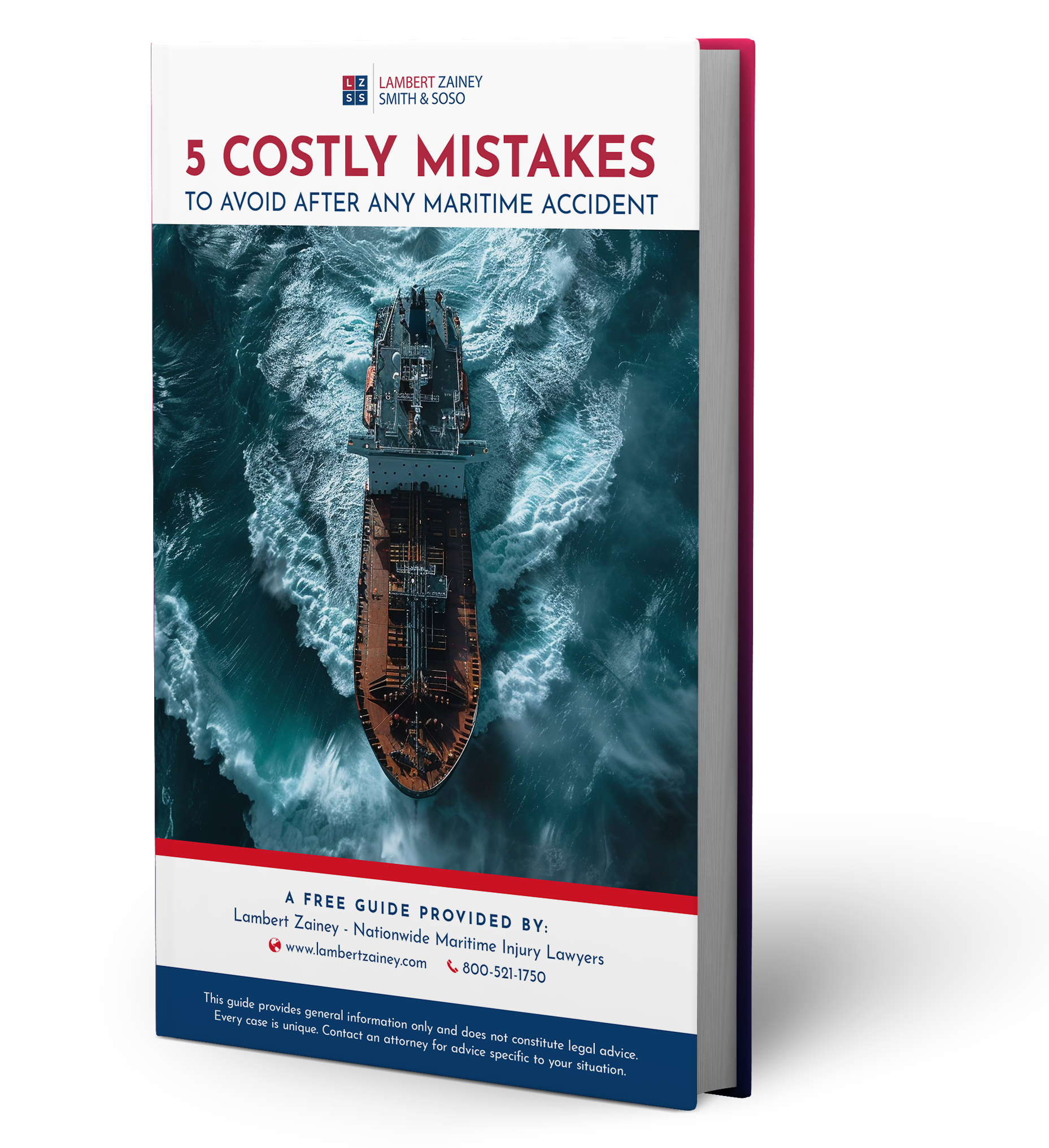PTSD is a mental health problem that some people develop after experiencing or witnessing a life-threatening event, like combat, a natural disaster, a car accident, or sexual assault.
Many people think of PTSD as something only war veterans experience. The truth is, anyone who has experienced a traumatic event can develop PTSD, even maritime workers. Under the Jones Act, maritime workers who suffer from job-related PTSD after a traumatic event may be able to seek compensation if their condition was the result of negligence on the part of their employers, captain or co-workers.

Symptoms of PTSD
Symptoms of PTSD usually manifest themselves soon after the traumatic event, but in some cases they may not appear for months or years later, and may come and go over time. The victim may behave normally until the symptoms are triggered by a period of stress or news of a similar accident.
Depending on its severity, PTSD may prevent a maritime worker from returning to work, enjoying normal activities, and impose other difficulties that were non-existent before the traumatic event.
There are four types of PTSD symptoms according to the U.S. Department of Veterans Affairs:
Other problems maritime workers with PTSD may experience include:
Causes of Maritime Worker PTSD
Maritime work is often stressful and dangerous. Severe injuries and deaths occur among maritime workers at rates significantly higher than workers in other industries. Accidents on port docks, vessels at sea, or offshore oil rigs can be devastating. There are many situations a maritime worker may encounter that can cause them to develop PTSD, such as:
For a diagnosis of PTSD, symptoms must last for more than a month and be severe enough to interfere with relationships or work. The duration of the disorder varies. For some, recovery occurs within 6 months, while others may experience symptoms that last much longer. In some instances, the condition can become chronic.
PTSD is diagnosed by a medical professional, such as a psychiatrist or psychologist, who has experience treating people suffering from mental trauma.
According to the National Institute of Mental Health, in order to be diagnosed with PTSD, a maritime worker must exhibit all of the following for at least one month:
Psychotherapy and medication are the two main types of treatment prescribed for PTSD.
Get Our FREE Guide to Protect Your Claim
What you do after an accident is critical. Insurance companies will try to get you to make mistakes that can hurt your claim. Our free guide can help you avoid these traps.
Download our complimentary guide: “5 Costly Mistakes to Avoid After Any Maritime Accident” to arm yourself with the knowledge you need to protect your rights.
Speak to an Experienced Maritime Injury Attorney
Maritime injuries can be both mental and physical. If you are a maritime worker who believes you may be suffering from PTSD after an on-the-job accident that was caused due to negligence, it’s important that you seek help right away.
For more than 40 years, the maritime attorneys at Lambert Zainey have helped injured maritime workers get the compensation they deserve under the Jones Act and other maritime laws. Contact us today to schedule a free consultation.
PTSD is a mental health problem that some people develop after experiencing or witnessing a life-threatening event, like combat, a natural disaster, a car accident, or sexual assault.
Many people think of PTSD as something only war veterans experience. The truth is, anyone who has experienced a traumatic event can develop PTSD, even maritime workers. Under the Jones Act, maritime workers who suffer from job-related PTSD after a traumatic event may be able to seek compensation if their condition was the result of negligence on the part of their employers, captain or co-workers.

Symptoms of PTSD
Symptoms of PTSD usually manifest themselves soon after the traumatic event, but in some cases they may not appear for months or years later, and may come and go over time. The victim may behave normally until the symptoms are triggered by a period of stress or news of a similar accident.
Depending on its severity, PTSD may prevent a maritime worker from returning to work, enjoying normal activities, and impose other difficulties that were non-existent before the traumatic event.
There are four types of PTSD symptoms according to the U.S. Department of Veterans Affairs:
Other problems maritime workers with PTSD may experience include:
Causes of Maritime Worker PTSD
Maritime work is often stressful and dangerous. Severe injuries and deaths occur among maritime workers at rates significantly higher than workers in other industries. Accidents on port docks, vessels at sea, or offshore oil rigs can be devastating. There are many situations a maritime worker may encounter that can cause them to develop PTSD, such as:
For a diagnosis of PTSD, symptoms must last for more than a month and be severe enough to interfere with relationships or work. The duration of the disorder varies. For some, recovery occurs within 6 months, while others may experience symptoms that last much longer. In some instances, the condition can become chronic.
PTSD is diagnosed by a medical professional, such as a psychiatrist or psychologist, who has experience treating people suffering from mental trauma.
According to the National Institute of Mental Health, in order to be diagnosed with PTSD, a maritime worker must exhibit all of the following for at least one month:
Psychotherapy and medication are the two main types of treatment prescribed for PTSD.
Get Our FREE Guide to Protect Your Claim
What you do after an accident is critical. Insurance companies will try to get you to make mistakes that can hurt your claim. Our free guide can help you avoid these traps.
Download our complimentary guide: “5 Costly Mistakes to Avoid After Any Maritime Accident” to arm yourself with the knowledge you need to protect your rights.
Speak to an Experienced Maritime Injury Attorney
Maritime injuries can be both mental and physical. If you are a maritime worker who believes you may be suffering from PTSD after an on-the-job accident that was caused due to negligence, it’s important that you seek help right away.
For more than 40 years, the maritime attorneys at Lambert Zainey have helped injured maritime workers get the compensation they deserve under the Jones Act and other maritime laws. Contact us today to schedule a free consultation.









